2022 Impact Stories
AS TOLD BY NONPROFITS
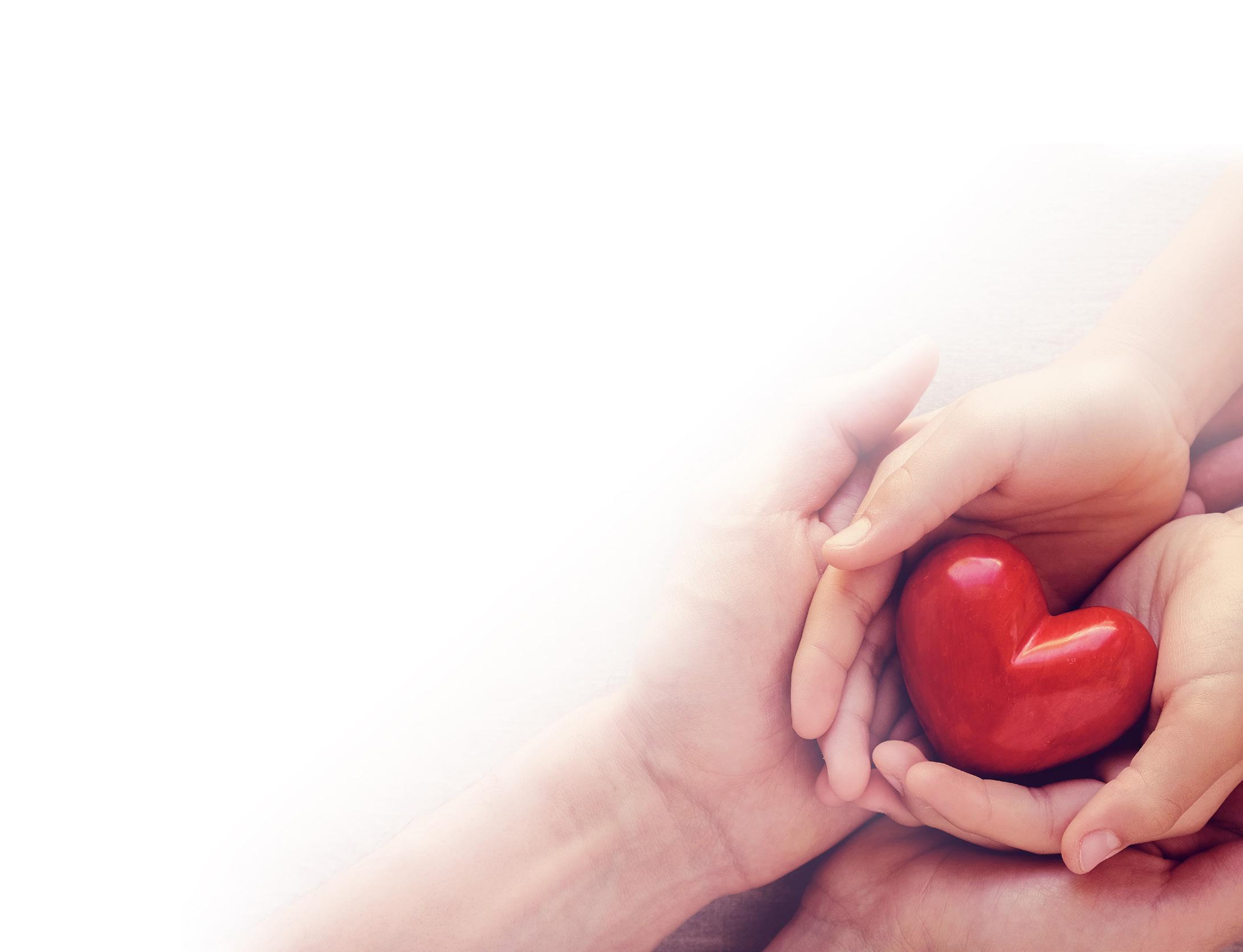 of the Stop & Shop Community Bag & Bloomin’ 4 Good Programs
of the Stop & Shop Community Bag & Bloomin’ 4 Good Programs

 of the Stop & Shop Community Bag & Bloomin’ 4 Good Programs
of the Stop & Shop Community Bag & Bloomin’ 4 Good Programs
Since late 2021, the PS It Matters Nonprofit Engagement Team has conducted interviews with over 70 nonprofits that have benefited from Bags 4 My Cause or Bloomin’ 4 Good. The resulting Impact Stories highlight each nonprofit’s mission, services they provide and the needs they fill. Learning from these organizations firsthand is inspiring and emphasizes the importance of the Community Bag and Bloomin’ 4 Good Programs and impact on the local Stop & Shop community.
Enclosed are four stories of nonprofits that have benefited from the Stop & Shop Community Bag and Bloomin’ 4 Good Programs. More stories can be found on the Stop & Shop Program Website: stopandshop.2givelocal.com/stories
In 2023, the Nonprofit Engagement Team will continue conversations with nonprofits creating additional Impact Stories—at least one a month—and feedback calls with 200 to 300 organizations. These calls will focus on how nonprofits interact with the program, the marketing tools they use, additional tools they would like to see on the Program Website and how the Community Bag and Bloomin’ 4 Good Programs fit into their overall fundraising strategy. We plan to adjust our outreach to nonprofits based on feedback and report overall findings in early 2024.
We look forward to continuing the success of the Stop & Shop Community Bag and Bloomin’ 4 Good Programs in 2023. We truly value your partnership and the impact we have together on local nonprofits in your banner’s footprint. Thank you for contributing to the positive outcomes for Stop & Shop, PS It Matters and the local community!
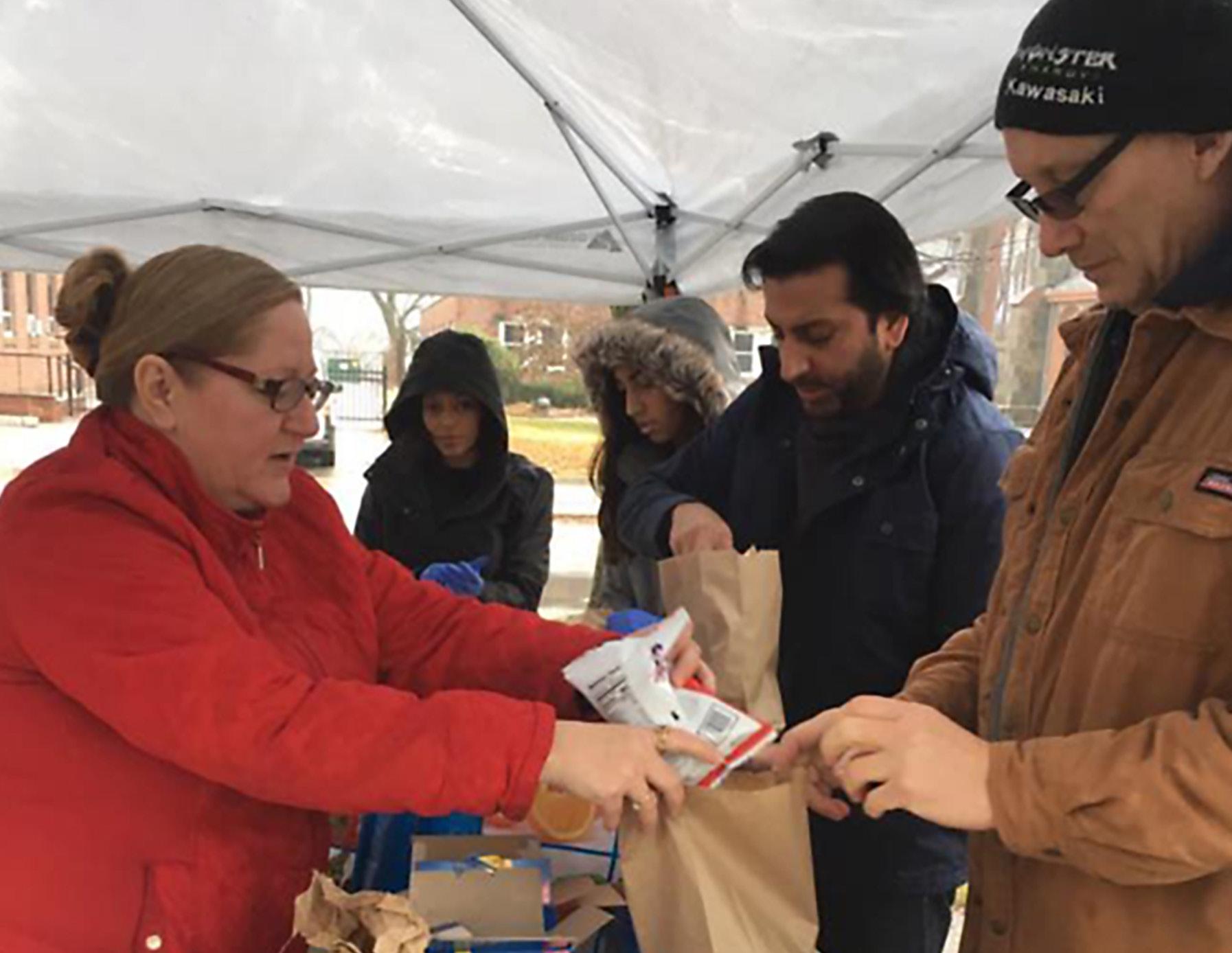
Andrea Smith is on a mission. Since 2014, while holding a full-time day job, she’s led this all-volunteer organization to fight homelessness in Rhode Island with grit and determination. Stop & Shop has donated almost $1,100 to Help the Homeless RI through the Bloomin’ 4 Good and Community Bag programs.
Tell us about the Help the Homeless RI (HtHRI).
Our mission is to serve people experiencing homelessness by operating meal sites, providing basic essentials to be distributed by outreach workers, and advocate for change in the system that serves people experiencing homelessness.
We started in 2014 and became a 501(c)(3) in 2016. I was working with two women who would collect items to bring down to Providence. This was toward the end of 2013, and it was a really cold winter. At that time, we were introduced to somebody who lived in the West Warwick community who was experiencing homelessness and knew everybody in the community in need of services and not getting any. We were providing a Sunday meal in West Warwick, but at the same time, I was curious about services for people experiencing homelessness. Who’s out there? What are they doing? And how can we help? Because I feel like you can have more of an impact if you collaborate. So, I started doing some research and created a list of people I wanted to meet and talk to.
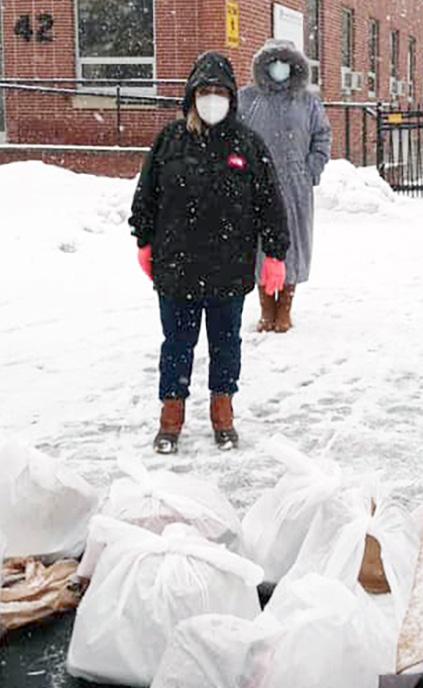
Eventually I met Barbara Kalil (she is now Barbara Freitas and now on our board). She and her late husband were formerly homeless and she runs the Rhode Island Homeless Advocacy Project. They were in Providence doing outreach six days a week. And all they had to offer people was a bus pass to get to a shelter. And I just thought, don’t these people need stuff? You’ve got at least to have hats and gloves in the winter, and what do
people do about socks and underwear? So, my journey started with a GoFundMe for socks and underwear.
Eventually I went my own way because I wanted to branch out of the immediate area. We kept our toes in West Warwick but expanded to Pawtucket and eventually to Woonsocket. We thought that we would only be able to provide meals maybe twice a month in Woonsocket. We knew the need would be huge, that there would be a lot of people. And weren’t sure what the community support would be. But the community support was just incredible. That’s where building relationships and partnerships is really important. The Woonsocket meal site was eventually taken over by our partners from the MAE Organization for the Homeless and serves anywhere from 80-150 people every Sunday.
It’s important to know that we’re a small organization. One of the things that we’re known for is being nimble. We respond quickly and don’t have a bureaucracy.
Not only am I the executive director, involved in statewide coordinated outreach with other organizations, but I’m also on the front lines. And I think that’s rare. I have a presence every Sunday and Thursday, for example, in West Warwick. But being active on the ground gives you in-depth knowledge of the community and helps build relationships you can’t get otherwise.
HtHRI also has three folks on the board that have lived experience; I think that helps. And I know what it’s like.
I know what it’s like to be poor because I’ve been there, too. I was a single mom. I raised a son on my own and sometimes you don’t have an extra dollar, sometimes you just don’t.
We don’t provide services; we’re more about goods. Our primary focus is to provide the most needed items, which are tents, sleeping bags, backpacks and winter gear, but we collaborate with other organizations that do provide services and supplement their services by providing goods or funds. And that’s again why our partnerships are so important. My goal is typically to connect people to a homeless service provider to provide the services and then they can come to us if there’s something that their client needs that they can’t provide.
We sometimes have funds available to assist in other ways. We’ve put folks in hotels; we’ve done security deposits; we’ve done plane tickets for folks to get home to family who would have shelter for them. Everything from toiletries to security deposits and rental assistance, just the whole gamut.
Tell us a story that clearly illustrates the good work you are doing.
We’ve initiated three meals sites in three communities. And the number of people that we have impacted is just incredible. And if we only looked at what we do at our meal sites, we average 400 meals a week. And then you need to appreciate all the relationships that are formed. At those meal sites, people are given an opportunity to serve the folks in their community. Community Service breaks down the stereotypes of people who are poor and
homeless and then people want to help because they have a relationship. They look forward to serving; it’s not work. It’s, “I’m going to see my friends and I’m helping them, and it feels good.”
We’ve focused on serving meals and providing goods to the underserved communities of West Warwick, Woonsocket and Pawtucket. While we don’t do housing, the goal really is to get people housed. It’s a matter of continually advocating for them, making connections and trying to build capacity.
People can get frustrated when there are plans to develop housing for the homeless in their own backyard. But I think what people don’t understand is that you already have people who are experiencing homelessness living in your community. Especially in a community that is not homeless friendly, people who are experiencing homelessness will make sure that they’re not visible.
There can be temporary solutions. For example, in 2016, there was a homeless encampment in West Warwick, and it took about a year, working with a volunteer committee, to get everyone out of there and in a stable place. But then life went on and there was nobody to address the newcomers as they came because it had been an all-volunteer temporary committee.
I think what people don’t understand is that you already have people who are experiencing homelessness living in your community.
Now we have a dedicated working group made up of representatives from several organizations. It started as a healthy neighborhoods work group to address landlord/tenant issues. But then one of the committee members said that we can’t talk about housing and not talk about homelessness. The goal of the working group is to become a model for how other communities can address the lack of housing. And because it’s a working group, it’s not going to go away.
One of the goals last year of the work group was to get folks in hotels. HtHRI has stepped up three times to run a hotel program because the system had no immediate solution for folks who were medically compromised and families with children. It’s still a systemic problem that needs to be addressed.
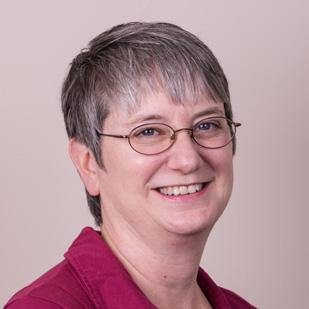
The other thing is that all our food is cooked by volunteers, and they take that money out of their own pockets to provide the food they cook for 80-150 people. And we’ve been doing this since 2014. Their generosity just blows my mind.
I’m extremely grateful for all our volunteers, donors, churches and organizations we work with. And so many people who’ve just been so incredibly amazing. When we all work together, when we are united, we really can make a huge impact on the community.
And I’m grateful to all the people who influenced me and inspired me, like Barbara and her husband. She got me involved in the statewide outreach and opened my eyes to true outreach. That is, meeting people where they are. Sometimes those places can seem scary and dangerous until you take the time to have conversations.
How will you use the funds raised from the Stop & Shop Community Bag and Bloomin’ 4 Good programs?
What do you want people to know about your organization?
We share hope. We’re an all-volunteer organization. We have very minimal overhead; just about everything goes directly to the people in need.
And although we have an overwhelming number of volunteers who show up at our meal sites and help us on Sundays, there’s less than a handful of us that are doing the day-to-day work, which means 80% of what’s done is done by me on top of working a full-time job.
Directly to purchase basic human needs for the homeless.
When we all work together, when we are united, we really can make a huge impact on the community.Andrea Smith is president and executive director taking part in cooking, delivering meals and making a difference.

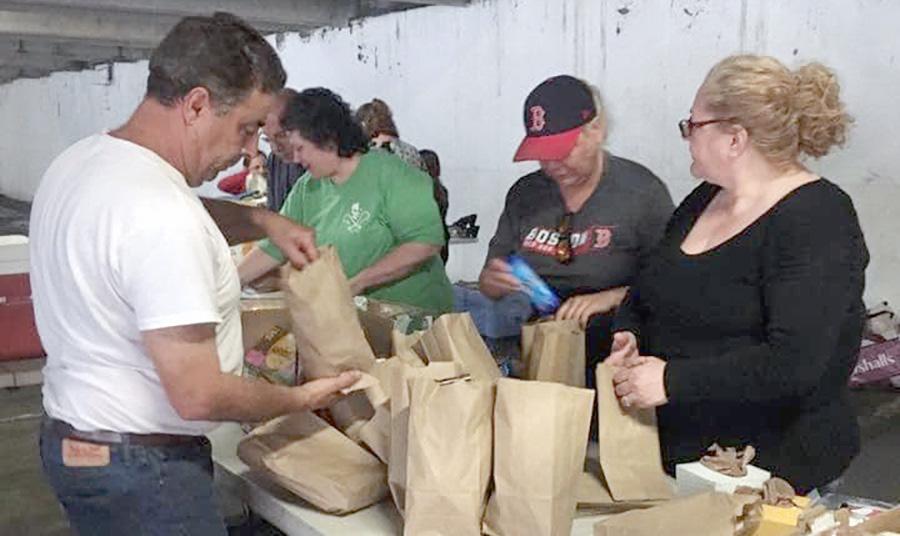
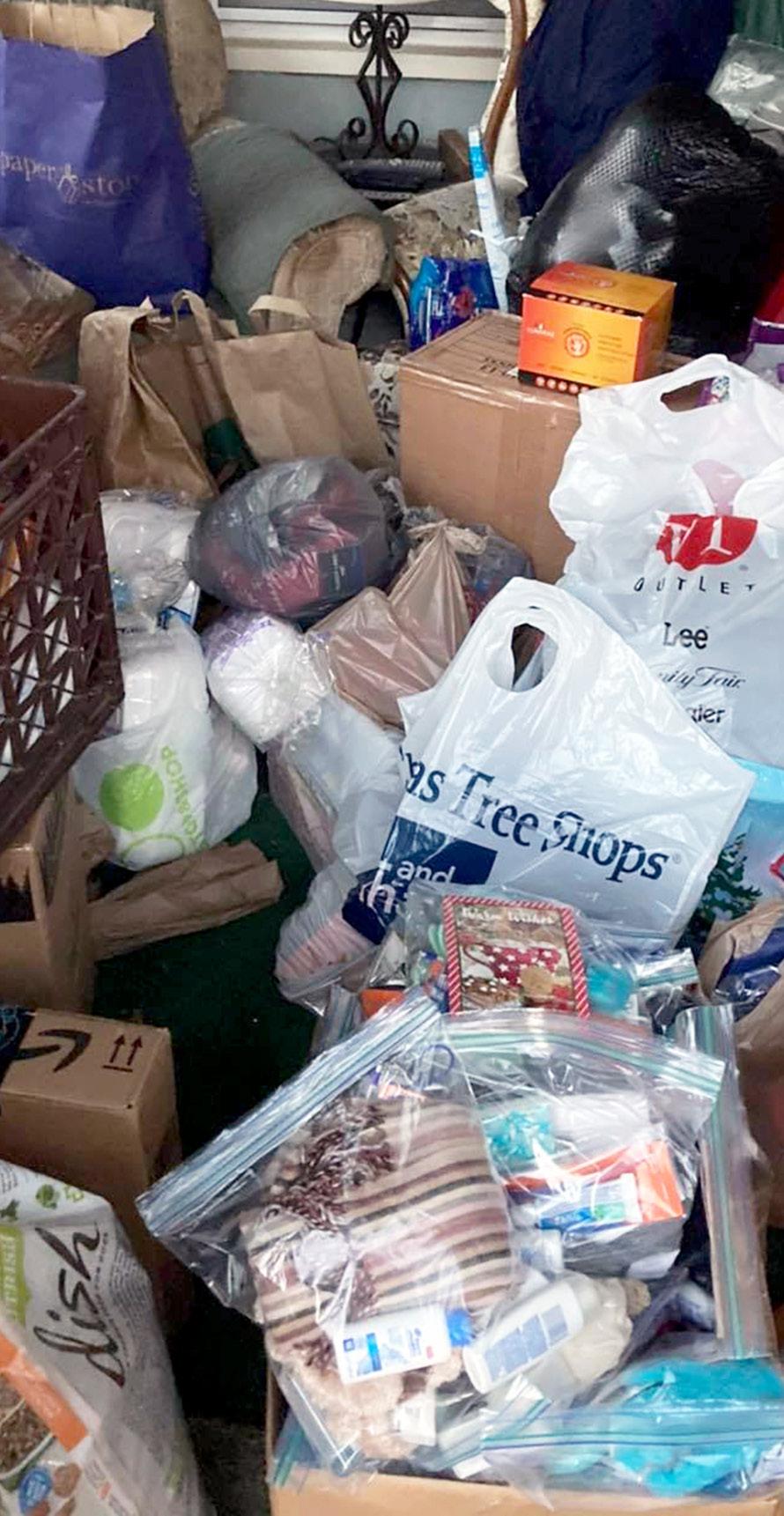

This all-volunteer, grassroots organization strives to help homeless vets gain control over their lives and circumstances. Emmaus for Veterans is supported by Stop & Shop through its Community Bag Program.
Tell us about the Emmaus for Veterans.
Our organization started in 2008 and became a registered 501(c)(3) nonprofit in 2012. We assist veterans in need who have been devastated by the effects of war, and we also provide support to their families.
The primary focus of Emmaus for Veterans is to help homeless vets gain control over their lives and circumstances and become productive members of society. Today, over 400,000 homeless veterans are in this country; it’s an epidemic.
We are always ready to do whatever is required to help our vets. Their success is our number one goal.
Emmaus for Veterans believes every veteran deserves a success story, and we provide support to try to make that happen. Our devotion to our mission comes from being in these individuals’ shoes. Many of us were headed down the wrong path before turning our lives around.
We are an all-volunteer organization; no one here gets paid. The proceeds from every donation and fundraiser go right back to the veterans.
What services do you supply to the community?
We provide funds and support to veterans in need and their families within our community. We are here to help our vets with whatever is required to get back on their feet.
The services we deliver include providing vocational training for homeless vets, providing physiological and emotional support, and informing and assisting veterans and their families in obtaining the benefits to which they are entitled.
For example, the widows of veterans often need help obtaining benefits, including pensions due from their spouse’s service. Our organization assists in this process, which can be costly. Since we find many of these widows are living on minimal income, they otherwise wouldn’t be able to afford the expense involved.
We also provide veterans with clothing, tools and transportation to get back and forth from school and work. Recently a veteran from a shelter got a job, but he didn’t have the proper tools required. With the help of our organization, he was able to purchase what he needed to start his new career. We are always ready to do whatever is required to help our vets. Their success is our number one goal.
What sets you apart from other nonprofits in your community?
We are not afraid to take on a challenge and try our best never to say no to a request. Many individuals we work with suffer from post-traumatic stress disorder (PTSD), which is one of the more challenging aspects of what we do.
Our newest project is buying a local farm to house our veterans. This project will allow us to deliver numerous opportunities to reduce the effects of PTSD. Farming, cooking and other skills will be taught. Interaction with
animals will also be very beneficial for calming and even healing the symptoms of PTSD.
Tell us a story that illustrates your organization’s good work.
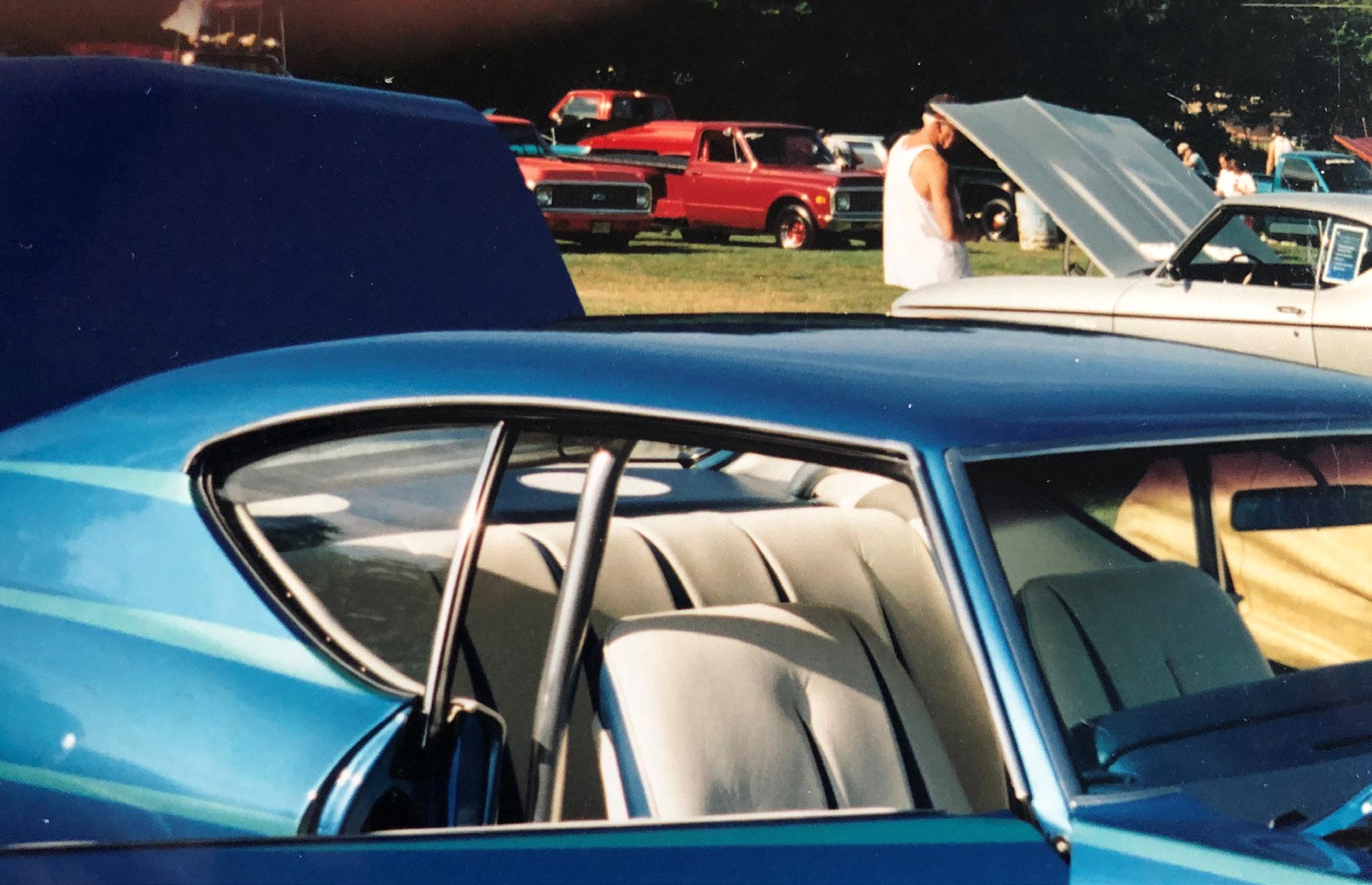
I want to tell a story about a veteran named Angelo. He fought in Vietnam, up and down the Mekong Delta,
where large amounts of Agent Orange were dumped. The effects of this, unfortunately, were lifelong for Angelo. Because of his exposure to Agent Orange, his lungs were burned, and he has needed to wear an oxygen tank since age 24.
When Angelo got home and out of the hospital, the PTSD really set in and dramatically affected his life. He received
a letter posthumously from a friend who had passed away in Vietnam. Angelo and this friend worked on muscle cars together before the war and were passionate about it. The letter stated that if something were to happen to him, his Chevy muscle car would go to Angelo.
Angelo took this car and totally rebuilt it. He channeled his love for working on cars and allowed it to calm his PTSD. He went all over to show this car. Angelo eventually got the car in a show at the Chevy Hall of Fame for muscle cars and won first prize.
these vets happy is amazing. We enjoy seeing the smiles and getting that connection to say, “Hey, we care about you. We didn’t give you anyone’s hand-me-downs.” We want our vets to look their best and feel their best in something brand new. Providing several days’ worth of clothing is very important to us. If someone gets a job, we want them to be confident that they will have a nice clean set of clothing for every day of the week. We want to make sure that we set our veterans up for success.
Working on this car became his medication, and his passion and enthusiasm allowed him to overcome a lot of his PTSD, which saved his life. We recently received a donation of a $15,000 movie camera. With this camera, we plan on turning Angelo’s story into an inspiring documentary film. He allowed his passions to create his form of therapy. It is an important story to tell and will enable people to understand what these vets are going through.
What is your most outstanding contribution to the community?
It’s the connection we make with our veterans. We create a wonderful community for vets in need. When people get emotional, and you can feel how thankful they are, that is all the reward we need.
We receive lots of brand-new clothing donations due to overstock. Being able to hand out garments and make
We are all volunteers. We come together and do this work purely to help our veterans in need. A great example is the documentary we are doing with Angelo. This film will be a genuine team effort. One of our members with a background in radio will be doing the commentary. My son has a background in film, and he will be doing all the audiovisuals. This project will be a labor of love.
How are you using the funds you’ve received from the Stop & Shop Community Bag Program?
Some of the funds are earmarked to help the widow of a Vietnam veteran obtain her pension. Other funds from Stop & Shop will go towards our farm project and be used for vets who need money for transportation.
Is there anything you’d like to add?
Another project we are working on involves partnering with a Marine that builds homes. We are working with him to find donated land where he can build modular
We want to make sure that we set our veterans up for success.
homes for veterans needing somewhere to live. This project will create a supportive community for vets in need, which would be fantastic.
One of our mottos is that we want to teach. We use the saying, ‘If you teach a man to fish, you feed him for a lifetime.’ All these vets wish to live the American dream we’ve fought for. Our goal and passion are to help them achieve success.
Please visit our website at www.e4v.org to learn how you can help.
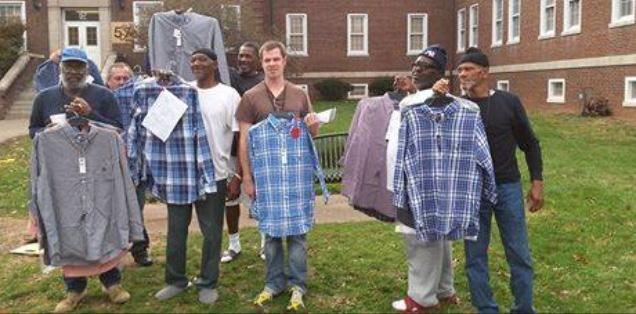
Tom Frodella is CEO of Emmaus for Veterans and a veteran of the U.S. Military.

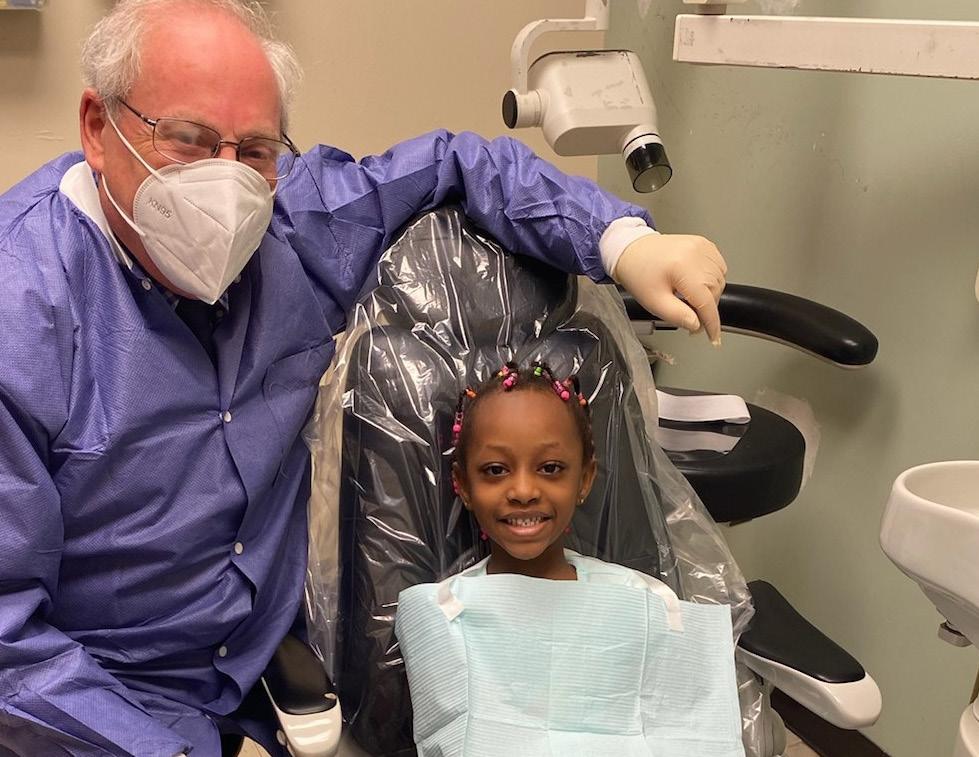
People are astounded when CEO Dr. Miriam Vega tells them, “We’re actually in the rural parts of New York City.” In an area with few resources, the Joseph P. Addabbo Family Health Center serves as the patient-centered medical home for the vulnerable population. Stop & Shop has supported the Joseph P. Addabbo Family Health Center through the Community Bag Program.
Tell us about the Joseph P. Addabbo Family Health Center.
We were originally established as a free pediatric clinic in 1981 by U.S. Representative Joseph P. Addabbo, Sr. For more than 20 years, Congressman Addabbo passionately represented the Rockaways and Southeast Queens area in Congress. It was just one little, small clinic and it’s grown over the years. We now have five sites.
We are what’s called a Federally Qualified Health Center. And our main mission is to serve everyone regardless of ability to pay and to make sure that we’re addressing the community health needs as effectively and compassionately as possible by providing leading preventative and comprehensive primary care services.
If you look at the Rockaway peninsula, Far Rockaway is at the eastern end, an area that’s far from many other parts of New York city. There are low resources in the community. You have St. John’s Hospital and then Joseph P. Addabbo as the big family health practice.
Because we’re one of the few resources here, we have to supply as many essential services as possible. So along with primary care, dental, behavioral health, ob-gyn, we also provide services called Ryan White services that are for individuals with HIV or people at elevated risk for HIV. We also do a lot of outreaches in the community to help educate the community in terms of health, risks and resources. Those are all essential to a community that’s so separated and isolated from the rest of New York City.
Tell us a story that clearly illustrates the good work you are doing.
We try to see the whole person, so we provide internal medicine, gynecology, dental, podiatry; we have an allergist on site, and we have behavioral health. We are about being a patient-centered medical home.
community?
In some ways, what sets us apart is that we serve a population that’s very vulnerable, due to geography, due to health inequities in the community, due to community trauma.
We have a loving head of dentistry who actually goes into the schools sometimes if he hears of kids having extreme dental pain that’s keeping them from attending school. We have very caring providers that go the extra mile to help the patients. And that’s what really drove us this past year, a commitment to community health.
And COVID hit us very hard. One of our providers died from COVID. One of the first cases of COVID in New York city was here in Far Rockaway, and we took that very personally. We immediately did ten testing sites for COVID. We were the first ones to do it in the Rockaways because we knew that many of our community members were “essential workers.” They worked in grocery stores and service positions. They were
MTA
We try to see the whole person. We are about being a patient-centered medical home.
workers. We wanted to be there for the community to help them help the rest of New York City.
A lot of what we did, we did on the fly. We, along with the experts, were learning as we went along. And because of that, we got a great deal of notice, and Governor Cuomo also asked us to become an official testing site.
And then, I was put on the Vaccine Equity Task Force because what we wanted to champion was to make sure that everyone who needed and wanted a vaccine received it. Far Rockaway still has one of the lowest vaccine rates in New York City. We also became a dedicated weekend vaccination site to encourage more people to get vaccinated.
At one point, the vaccine rates were 38%. We and others who helped along the way have gotten it now past 64%. And we did that not only with the weekend vaccine clinics, but with our outreach teams. I mentioned how we have HIV programming. What we did is that we pivoted some of our HIV outreach teams to become vaccine outreach. We had a bodega program, and we would also go into Stop & Shop. We’d go into the local corner grocery store, to the pizza shop and talk to the owners and to the managers and patrons about the importance of the vaccine. And what we were trying to do was create a snowball effect of getting the word out, talking to gatekeepers in the community, and we felt that it did a lot of good.
There were times when we would see some of the same people when we were doing outreach and they kept saying no and no, but by the fifth time that we saw them, they went and got vaccinated. So, persistence worked out.
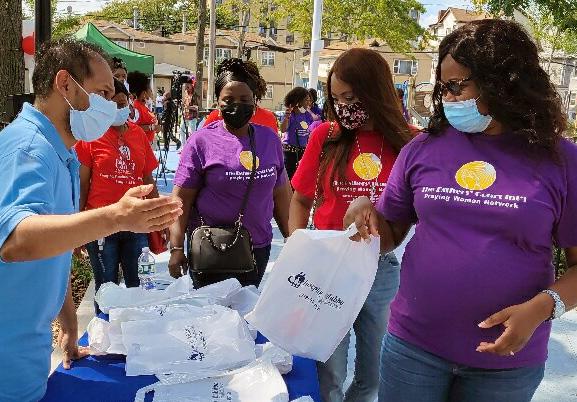
I am very proud of what we’ve done in terms of COVID for sure. We took the leading role in the community, and we went out there when no one would. We weren’t too sure if our PPE was going to hold up even doing the outreach and then doing the vaccines. We’ve vaccinated hundreds and hundreds of people and changed minds along the way. But while doing that, we also maintained our level of primary care services, so we didn’t stop seeing patients for other things. That is a credit to our staff who remained dedicated to serving the community.
We come from the community and are for the community.
We kept a focus on other health issues, preventative issues, focusing on colonoscopies and getting people their mammograms. We restarted the mammogram screening van. We kept our eye on COVID, but we also kept an eye on what other health needs had to be addressed.
want people to know about the Joseph P. Addabbo
About 75% of our employees are from the community. So, we’re community minded. We come from the community and are for the community. We understand the
issues that arise from community trauma, which come from living in resource-poor environments with lack of access to resources.
We’re very proud of the fact that our staff represents the community. And we go out of our way to help the patient population because some of them may not even understand English. We’re there with them; no one gets turned away. We’re always going to help them out or try our best to get them other resources.
Shop Community Bag
These are unrestricted funds, and we love to use unrestricted funds for the additional services that we provide to patients. For instance, we give them Metro cards so that they can get to their referrals. Often patients miss their referrals, their specialist referrals. For example, they won’t go to the cardiologists because they can’t get there. It’s too much of a hassle given the poor public transportation in the Rockaways and its geographical isolation. The Metro cards help people get to their appointments, not only to our appointments, but to the specialty appointments as well that they need.
Is there anything you’d like to add?
We’re expanding our Beach Channel Drive Building. We’re adding another 22,000 square feet and looking to see if we could bring in radiology or other much needed services to the Rockaway Peninsula that aren’t
there yet so the community can receive quality healthcare close to home. Additionally, we are planning to expand our own services to include pediatric dentistry as well as a Wellness Center for Diabetes. So, we’re looking for new partners to provide new services. And if people have ideas on what services they’d like to see, we welcome their input.
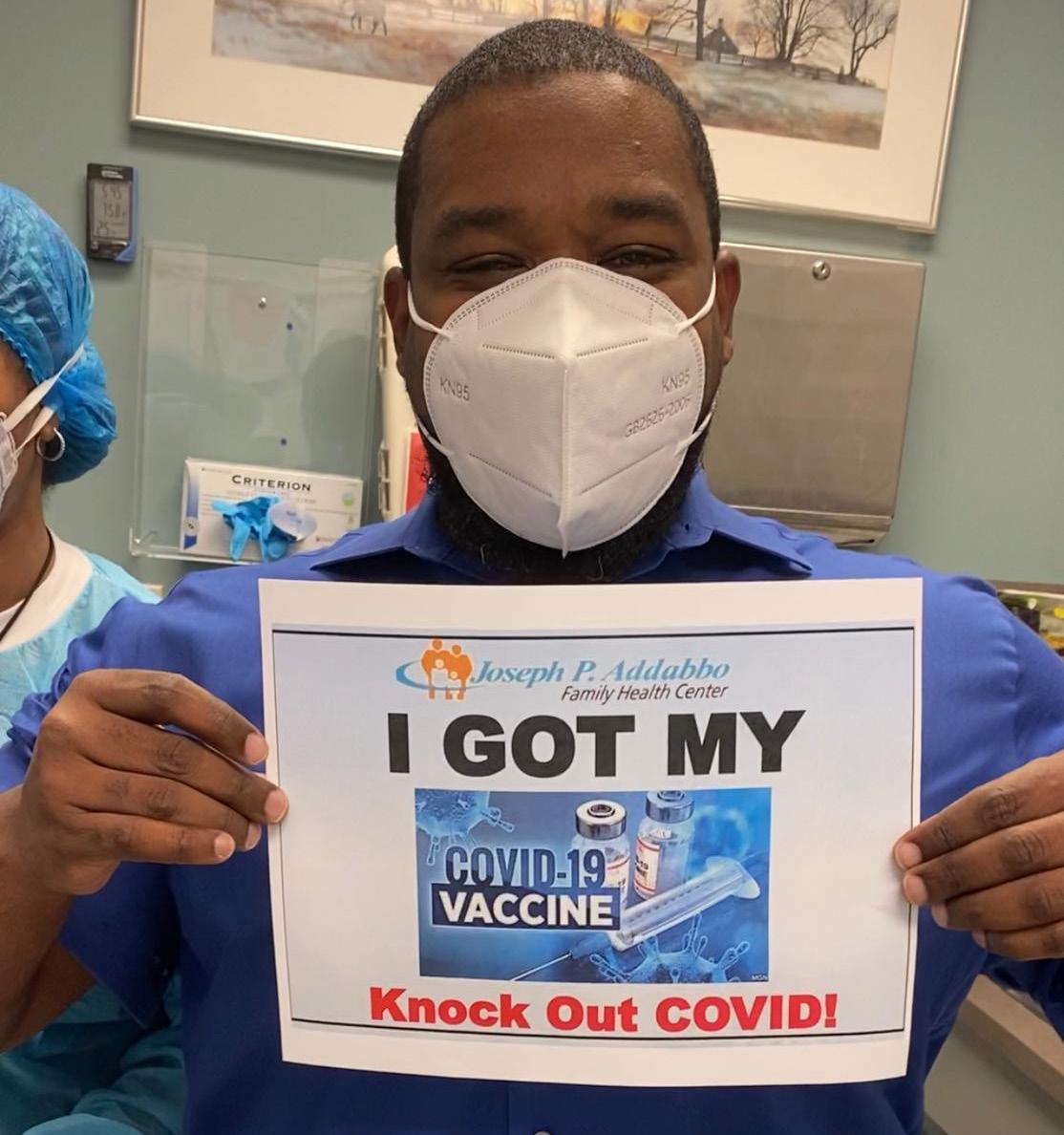
Miriam Vega, PhD is the Chief Executive Officer of the Joseph P. Addabbo Family Health Center, Inc. An experienced executive of non-profit organizations, including
Federally Qualified Health Centers and AIDS service organizations, Dr. Vega created the CHANGE model of capacity-building assistance which helps to build culturally-responsive programming, quality improvement and organizational infrastructure at community-based organizations across the Nation.
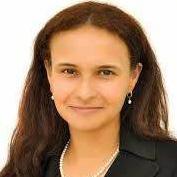
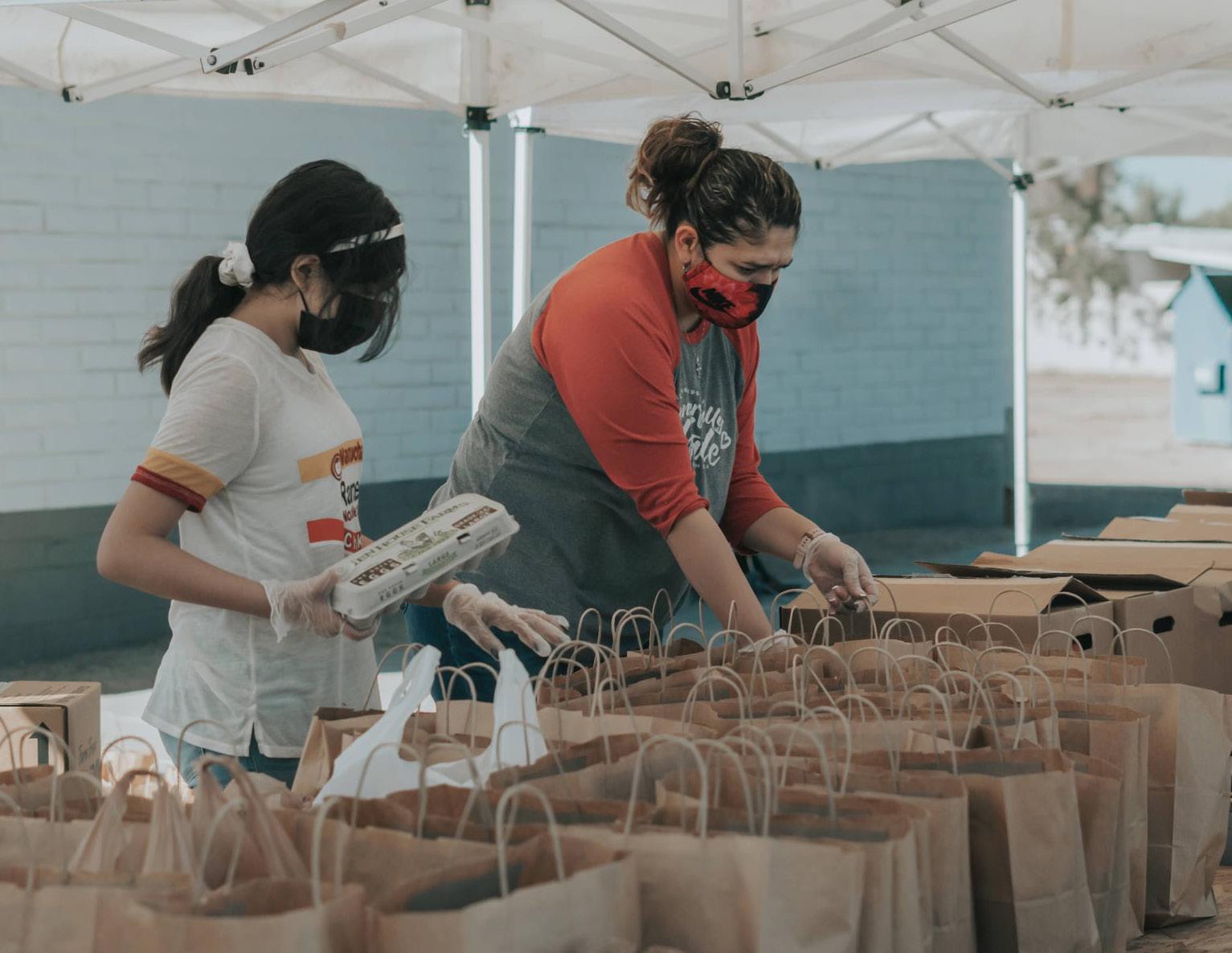
Thirteen years ago, an interdenominational collaboration among five churches stepped in to address food insecurity in the East Providence, Rhode Island, area. Stop & Shop has supported
Bread of Life Food Pantry through the Bloomin’ 4 Good and Community Bag Programs.
Tell us about Bread of Life Food Pantry.
Bread of Life Food Pantry is located in East Providence, Rhode Island. At one time, there was a food pantry at a community center in East Providence, but the community center closed down. The need for a food pantry, though, still existed in the area. As a result, in 2009, five churches banded together and decided to sustain this outreach.
One of the partner churches, the Newman Congregational Church, cleared out space to host the food pantry and has been very accommodating for us to operate.
There are a lot of churches that operate food pantries. What we are offering is not unique, but the way the food pantry came together is. It’s unusual that there is an interdenominational collaboration.
Tell us a story that illustrates the good work of your organization.
The pantry is a collaborative ecumenical effort of five East Providence churches of different denominations: Catholic, Episcopal, Evangelical Covenant, Nazarene and United Church of Christ. We have discovered that five churches working with each other means more ideas, more people, more money and more energy coming together to create a better outcome.
The pantry survives mainly on private donations as people easily understand our mission and how it is helping in the community. We are continually astounded by the generosity of our donors.
We provide nonperishables in addition to fresh produce and fresh bread. There is no income or geographic eligibility. The pantry is open to anyone that wants to come and receive food. We’re open twice a month from 5:00 to 7:00 pm.
Often people come in and say they never thought they would have to visit a food pantry. This is a difficult time, and we assure them they are totally welcome here. On any given day, any one of us could be in need of this service. We’re known as a place people can come to for food with no questions asked. People need that and they need compassion. It’s not just handing out the food, but we try to be friendly, open, welcoming and supportive.
We’ve been at the same location for 13 years now and remained in operation throughout the COVID pandemic. For two years, we shifted to an outdoor distribution model and set up tents in the parking lot of the church where the pantry is housed. We served guests in temperatures ranging from 12 to 95 degrees, rain or shine!
We are continually astounded by the generosity of our donors.
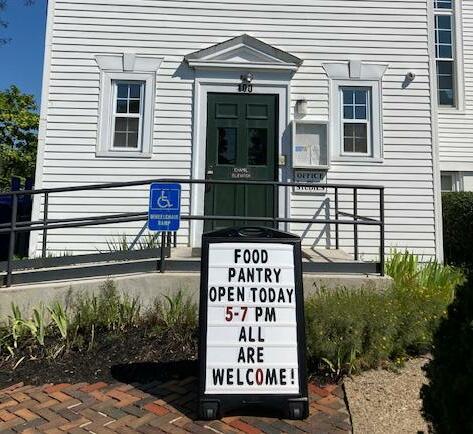
We want people in need to be assured that someone cares about their situation and that they never need to feel alone. We strive to remain a positive force in our community.
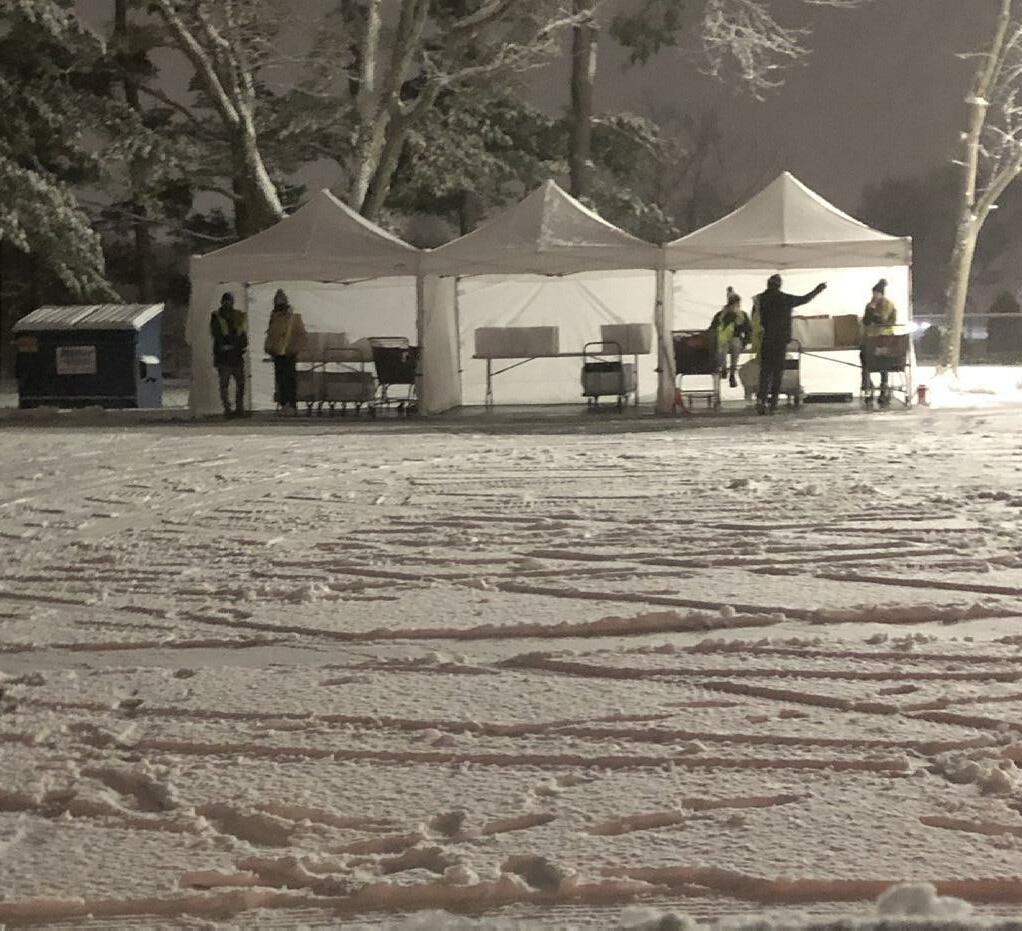
Also, the pantry requires the involvement of a large number of volunteers as we may serve as many as 100 households in a two-hour period. Yet, we are never low on volunteers as we get so much volunteer support from partner churches and from the community at large. We are always so grateful for the kindness of those who offer their time and compassion.
We receive quite a bit of our food at no cost from the Rhode Island Community Food Bank. They’re a wonderful organization, but sometimes they don’t have everything that we like to offer.
The funds from Stop & Shop are used to purchase the additional nutritious items we want to also provide our families, such as hearty cereals and soups for this time of year.
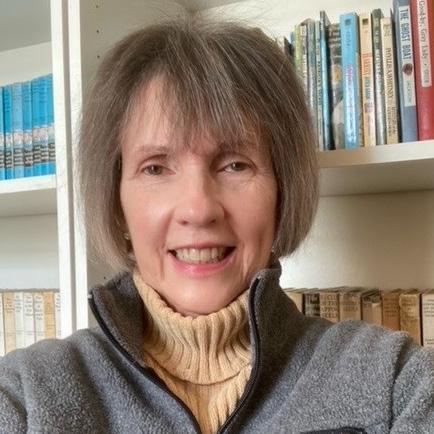
What do you want people to know about Bread of
How will you use the funds raised from Stop & Shop’s Community Bag and Bloomin’ 4Janet Bache is Pantry Coordinator for Bread of Life Food Pantry.
For more information about the Programs and to view more Impact Stories, please visit stopandshop.2givelocal.com
Jim Brennan
Co-Founder & COO 207.351.6903 jimb@psitmatters.com
Melissa Hansen Senior Program Manager 603.380.9400, ext. 109 melissah@psitmatters.com
